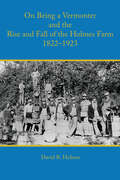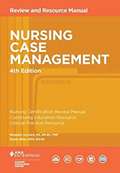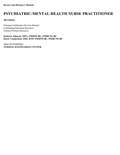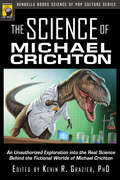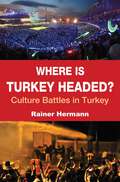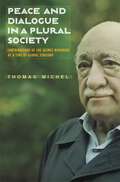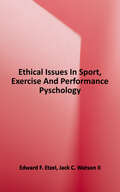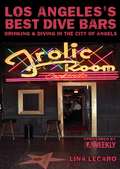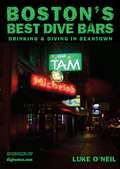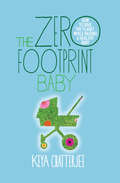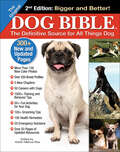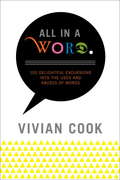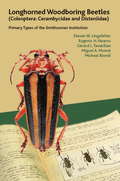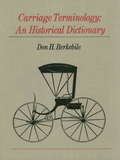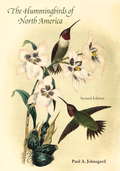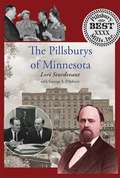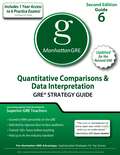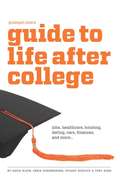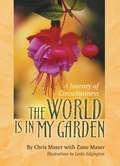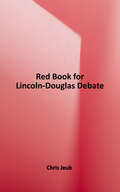- Table View
- List View
On Being a Vermonter and the Rise and Fall of the Holmes Farm 1822-1923
by David R. Holmes17. On Being a Vermonter is a case study of a Vermont farm that existed from the early 1800s to the early 1900s. As the Holmes Farm pioneered advanced orchard methods and made a distinctive contribution to the apple industry in Vermont, the book makes an important contribution to the literature and history of Vermont apple orchards. In addition, the farm was a leading breeder of trotters, horses with a Morgan horse heritage. The book examines the end of the farm due to foreclosure in 1923 and the resulting diaspora of the family and its transformation in a single generation. The author is a direct descendant of the Holmes family, which came to Vermont in the 1780s. In addition to reconstructing the history of the farm, he examines what it means to be a Vermonter by building on the legacy of the farm's 101year history.
Nursing Case Management Review And Resource Manual
by Margaret Leonard Elaine MillerWritten by nursing experts in case management, this book provides a clinical reference tool and continuing education contact hours. This manual helps readers enhance critical thinking skills and identify strengths and weaknesses. This manual contains an addendum, which includes information from the revised test content outline to ensure the manual is up to date. This additional information will assist you with successful study for the certification exam and may be used as a guideline for your practice.
Psychiatric-Mental Health Nurse Practitioner Review and Resource Manual
by Kathryn Johnson Dawn VanderhoefWritten by experts in psychiatric-mental health nurse practitioner practice, this book provides a clinical reference tool and certification examination preparation. This manual helps readers enhance critical thinking skills and identify strengths and weaknesses.
The Science of Michael Crichton: An Unauthorized Exploration into the Real Science Behind the Fictional Worlds of Michael Crichton
by Michael CrichtonMichael Crichton’s thrillers traverse the cutting edge of science and then push the envelope. How realistic are his takes on subjects ranging from dinosaur cloning to global warming, nanotechnology to time travel, animal behavior to human genetics? The Science of Michael Crichton gathers essays from prominent experts that examine the amazing inventions of Crichton’s books and lift up the hood, revealing the science underneath—exploring which Crichton imaginings are feasible and which are just plain impossible. Computer science innovator Ray Kurzweil looks at how virtual reality is portrayed in The Terminal Man; anthropologist Ian Tattersall takes on Crichton’s depiction of Neanderthals in Eaters of the Dead; meteorologist David Lawrence discusses global warming in State of Fear—and much more, in a fascinating volume that separates the science from the fiction.
Where is Turkey Headed?: Culture Battles in Turkey
by Rainer Hermann"Where is Turkey Headed? Culture Battles in Turkey" looks into the dynamics of social change in Turkey from the broad perspective of a German journalist who lived in Istanbul for nearly two decades. With a panoramic view of the history of the Turkish republic, including the late Ottoman era, the author presents a critical analysis of the cultural, economic and political transformation Turkey has long been going through. He discusses that the driving force for this change has its roots in the very society that has discovered its cultural, religious and ethnic diversity, and is pushing back against omnipotent government control.
Peace and Dialogue in a Plural Society: Contributions of the Hizmet Movement at a time of Global Tensions
by Thomas MichelIn a world that is too often seen as a cloash of civilizations, some believe there is another way, a path that involves engagement, dialogue, and respect. In Thomas Michel's new book, Peace and Dialogue in a Plural Society, he explores how Fethullah Gulen is one of those speaking most vocally in favor of a world community, where different faiths and nations can come together at one table to solve the multitude of problems facing today's world. Exploring the spiritual roots of Gulen and the Hizmet Movement, as well as drawing parallels between his own work as a Catholic priest, Michel shows how Hizmet has helped build a blueprint for intercultural communication in a time when too many voices are trying to stoke the fires of discord. Through education, dialogue, and a respect for basic human dignity, Michel finds a foundation in Gulen's faith and Hizmet's service upon which a healthy, diverse society can be built.
Ethical Issues in Sport, Exercise, and Performance Psychology
by Edward Etzel Jack C. WatsonThis book focuses attention on the range of unique ethical, legal, and related professional challenges faced by those who work in the areas of sport, exercise, and performance psychology. Ethical Issues in Sport, Exercise, and Performance Psychology is organized into four sections: ethical practices, specific populations, special settings, and academic issues. Professionals in higher education, university counseling centers, sports medicine clinics, and private practice, as well as students, will find this book an informative personal resource.
Los Angeles's Best Dive Bars
by Lina LecaroLos Angeles might be the capital of conspicuous consumption, but the other cliché about "La La Land"-that it's a cultural wasteland-couldn't be further from the truth. For every "Extreme Makeover-Club Edition" (in which would-be impresarios continually swankify their establishments in a relentless quest to be "the" hot spot du jour), there is a well-worn drinking hole full of history, serving up a far more elusive and seductive mix of stiff drinks, loose atmosphere and keep-it-real regulars.In Los Angeles' Best Dive Bars, you'll get the scoop and the poop on the city's liveliest, lowlife n' liquor-soaked landmarks. This essential booze bible has the lowdown on which bars serve free food, which have great-and not so great-karaoke, bars that appear in your favorite movies and much, much more. Whether you're looking for a friendly spot where "everybody knows your name," a filthy blackened cave where nobody ever will, a gently-gentrified hole specked with dive-obsessed hipsters or a dusty relic full of hip-replacements, you're sure to find a spot to soak up-and get soaked in-here in these pages.LINA LECARO is the nightlife columnist for the LA Weekly. She has been patrolling Los Angeles' most decadent after dark dens and its grungiest grottos with equal aplomb for over twenty years (i.e. before she could actually drink legally). A born and bred Angeleno, she's no angel when it comes to digging deep into LA's most harrowing drunkard-approved hovels . She might prefer her cocktails sweet, but her favorite bars (and barflys) have always been anything but.
New York City's Best Dive Bars
by Ben WesthoffSick of gentrification, $15 cosmopolitans, and clean bathrooms? Then this revised edition of the best-selling New York City's Best Dive Bars is the guide for you. Featuring all new reviews of one hundred of the best dive bars in the five boroughs of New York City and surrounding cities such as Jersey City and Hoboken, this book takes you where other bar guides fear to tread. Broken urinals and $2 PBRS? Yes!
Philadelphia's Best Dive Bars
by Brian McmanusPhiladelphia's Best Dive Bars reviews the grittiest drinking establishments in the city of brotherly love. If you want to avoid the tourist traps listed in those other bar guides and find out where to get wasted after visiting the Liberty Bell, then this book is required reading.Brian McManus is the music editor and a contributing food writer at Philadelphia Weekly. He's written for Houston Press, San Francisco Weekly, Chicago Reader, Cleveland Scene, and Spin magazine.
Boston's Best Dive Bars
by Luke O'NeilBoston's Best Dive Bars features opinionated reviews of 100 of the grungiest and grittiest drinking establishments in Beantown. If you want to avoid the tourist traps listed in those "other" bar guides and find out where real Bostonians do their drinking, then this is the book for you.Luke O'Neil has been covering arts and nightlife in Boston for ten years. For years he wrote a popular column called Barcode in The Boston Globe, where he still writes about cocktails and the restaurant and bar scene. He also pens a bar column called Thursty in the Boston Metro, the Liquid column in Stuff Magazine, and has written about bars for Boston Magazine and Black Book.
Houston's Best Dive Bars
by John Nova LomaxHouston, that sun-drenched, humidity-steamed subtropical megapolis, might not be the first place you think of when you rattle off great American drinking towns. When most outsiders think of the city at all, images of cowboys, astronauts and oilmen come to mind. And truth be told, many natives wrestle with the concept of a dive bar, thinking that any gin mill that lacks a velvet rope, bottle service and a valet parking service is a dive.In Houston's Best Dive Bars, award-winning journalist (and third-generation Houstonian) John Nova Lomax sets the record straight on what exactly a dive is (and isn't) in the Bayou City. From Korean houses of ill repute on Telephone Road to bluesy Third Ward juke joints, from Galveston County bayside gang haunts to Spring Branch redneck redoubts, from famous old Inner Loop standbys like the Lone Star Saloon and the West Alabama Ice House to obscure gems like the D&W Inn and the Sundown Saloon, Lomax drank, and with this book as evidence, lived to tell the dive-y tales. The result is the first of its kind and the only guidebook to drinking and diving in Houston you will ever need.
The Zero Footprint Baby
by Keya ChatterjeeIn our culture, pregnancy, birth, and childrearing are deeply connected to consumption and resource use. From the baby shower to the minivan and the larger apartment or first house, the baby-raising years are the most hyper-consumptive of our lives, and can set a family on an unsustainable track for years to come. The Zero Footprint Baby: How to Save the Planet While Raising a Healthy Baby shows how to raise a child with little to no carbon footprint. The book covers every issue new parents face, including pregnancy (what kind of birth has the lowest impact); what to feed your baby (breastfeed, formula, or both?), childcare (who should take care of the baby, and how?), and of course, diapering. Using a mix of personal anecdotes, summarized research, and clear guidance on how to pursue the most sustainable baby-rearing options, The Zero Footprint Baby is the resource and reference book for all new parents with green inclinations. Keya Chatterjee is the director for international climate policy at the World Wildlife Fund. She previously served as a climate change specialist at the US Agency for International Development, and also worked on communicating climate issues while at NASA. Keya's commentary on climate change policy and sustainability issues has been quoted in numerous media outlets, including USA Today, The New York Times, Fox News, The Associated Press, The Washington Post, and NBC Nightly News. She was also featured in a special issue of Politico on climate change highlighting the "muscle of the movement."
The Original Dog Bible: The Definitive Source for All Things Dog
by Kristin Mehus-RoeThe wooftasticsecond edition. &“This attractive, copiously illustrated easy-to-understand volume covers every aspect of responsible dog ownership.&” —Library Journal The revised and expanded second edition of the bestselling The Original Dog Bible remains the most comprehensive dog lover&’s resource on the market! The book is divided into eight parts—each fully illustrated and designed for easy reference—plus helpful, entertaining sidebars covering hundreds of related topics. With detailed chapters on the requirements of caring for a dog, health, training, and so much more, this book will prepare you for a wonderful life with a dog. Also included is a catalog of over 250 purebred dog breeds with insightful articles for each!&“Being a veteran veterinarian of twenty five years and a lifetime pet lover, I can enthusiastically say &‘this old doc learned new tricks&’ upon reading the consummate book on all things dogs . . . I highly recommend it!&” —Dr. Marty Becker, former resident veterinarian on ABC&’s Good Morning America and coauthor of Chicken Soup for the Dog Lover&’s Soul&“This comprehensive book certainly lives up to its subtitle . . . The best part of the book, however, covers &‘life with a dog,&’ with sections on pet care partners like sitters and walkers, emergencies, lost dogs, biting, traveling with a dog, and a fantastic chapter on activities one can do with one&’s dog.&” —Publishers Weekly
All in a Word: 100 Delightful Excursions into the Uses and Abuses of Words
by Vivian CookDelve into the hidden nature of words: An irresistible mix of information, curiosity, and fun. Linguist Vivian Cook takes us on a brilliant series of excursions into the history and meaning of words: How do we learn words as a child? How are words born, and why do they die? Why do some never get spoken, and others never written? Each chapter is charmingly illustrated—and accompanied by a rich assortment of games, lists, puzzles, and quotes. From polite words to crass words, from p-c words to Shakespeare’s words, from food and wine words to jazz and drug words—the book is an exciting exploration into the abundance and variety of words.
Longhorned Woodboring Beetles (Coleoptera: Cerambycidae and Disteniidae)
by Miguel A. Monné Eugenio H. Nearns Michael Biondi Gérard L. Tavakilian Steven W. LingafelterIn terms of quantity and breadth, the Smithsonian Institution's collection of longhorned woodboring beetles is one of the most important in the world. The effort to establish and describe this collection began as early as 1889, when the Smithsonian hired its first coleopterist (who was also only the second salaried entomologist at the Institution). In the years that followed, the collection grew thanks to the work of not only Smithsonian and U.S. Department of Agriculture entomologists, but also passionate amateur coleopterists who collected thousands of beetle specimens as they traveled the world for their professional occupations and then donated their unique collections to the Smithsonian. By 1957, the collection included nearly 200,000 specimens from around the world. Longhorned Woodboring Beetles (Coleoptera: Cerambycidae and Disteniidae): Primary Types of the Smithsonian Institution is the first complete catalog of Coleoptera primary types housed at the Smithsonian and includes stunning full-color images of each type specimen. The product of more than a decade of curatorial research and care, it reaffirms the superior international status of this truly remarkable collection.
Carriage Terminology
by Don H. BerkebileThis reference work is the definitive source for the terminology, nomenclature, and illustrative diagrams for all known carriage types of the Western world, as well as many of the better known vehicles of other areas.
The Hummingbirds of North America, Second Edition
by Paul A. JohnsgardSwift and iridescent, hummingbirds are found only in the New World, and encompass an amazing variety of specializations. No other family of birds can lay claim to so many superlatives, including smallest size, most rapid wingbeat, and most specialized plumages. While many species can be attracted to feeding stations and backyard flower gardens, others can be found only in the wild.Paul A. Johnsgard's Hummingbirds of North America is the only book devoted to the identification, distribution, and biology -- both individual and comparative -- of all hummingbirds that breed in North America. First published in 1983, this acclaimed volume now has been revised and expanded to include twenty-five Mexican species, such as the long-billed starthroat and the fork-tailed emeralds, thereby more than doubling the species coverage of the original edition. Full species-by-species accounts survey the evolutionary history, anatomical and physiological specializations, and comparative ecology, behavior, and reproductive biology of this largest family of nonpasserine birds. Individual accounts are complemented by 24 full-color paintings.Including updated range maps, identification keys, and a bibliography that has been broadened to include literature on the little-known Mexican species, the book is both accessible to amateur birders and an authoritative volume for ornithologists.
The Pillsburys of Minnesota
by Lori Sturdevant George S. PillsburyThe Pillsburys of Minnesota "Pillsbury" is a household word in many parts of the world, but in Minnesota it has carried a special import ever since the arrival of John S. Pillsbury, his brother George, and nephews Charles and Fred at the Falls of st. Anthony in the mid-nineteenth century. Here Star Tribune columnist Lori Sturdevant chronicles the family's pioneering role in making Minneapolis the milling capitol of the world. she explores the career of Minnesota governor "Honest John "Pillsbury, and also highlights the instrumental part he played in the growth of the University of Minnesota. Alfred Pillsbury's impact on the Minneapolis Institue of Arts, Philip's remarkable success at reviving a moribund milling giant through the introduction of new food products and George's efforts to fashion a more inclusive Republican Party, are only a few of the many strands woven into the Pillsbury story. From mining camps and insurance companies to arts organizations and charitable concerns, the family's imprint on Minnesota runs deep and wide. Book jacket.
Quantitative Comparisons & Data Interpretations Math GRE Strategy Guide
by Manhattan Gre StaffUpdated for the revised GRE, this guide is really two books in one, thoroughly covering two of the quantitative question types on the GRE. The Guide to Quantitative Comparisons provides students a framework for understanding what Quantitative Comparisons questions tests. Most importantly, it discusses time-saving strategies specific to the Quantitative Comparisons format. The Guide to Data Interpretation presents an overview of the types of graphs students can expect to see on the GRE. It also discusses the different types of questions typically seen on the GRE and provides guidelines for reading graphs and combining information from different graphs to answer questions. Purchase of this book includes one year of access to 6 of Manhattan GRE's online practice exams.
Gradspot.com's Guide to Life After College
by David Klein Stuart Schultz Chris Schonberger Tory HoenWhether you're searching for your first job or apartment, navigating the treacherous waters of office politics, or just trying to figure out how to file your tax return, Gradspot.com's Guide to Life After College tackles the most common issues facing twentysomethings as they find their feet in the â œreal world.â Authors Chris Schonberger, Stuart Schultz, David Klein, and Tory Hoen (twentysomethings themselves) have been through it all before, and they maintain a sense of humor about their triumphs and missteps along the way. In addition to sharing their own experiences and anecdotes, they have polled hundreds of recent grads and consulted topic experts to give readers the information they need, to find their feet beyond campus. Packed with indispensable tips, candid advice, and humorous dispatches from early adulthood, this easy-to-use guide has everything you need to know but didn't learn in college!Topics include: Finding an Apt, Job Hunting, Healthcare, Credit, Top Recent Grad Cities, Cars, Student Debt, Saving & Investing, Office Etiquette, Networking, Dating, Travel, Cooking, Moving Home, The "One-Year Rut", 401(k)s, and more.
The World is in My Garden
by Chris Maser Zane MaserThe World is in my Garden: A Journey of Consciousness is based on a simple premise: the private garden is a metaphor for everything that goes on in the macrocosm, including ecological, social, personal and spiritual issues. The authors work the metaphor of the garden in a rich way. This book show us how to connect what seems like a simple personal act, tending a home garden to larger social issues. They guide us through four garden gates: Ecological Consciousness, Social Consciousness, Personal Consciousness, and Spiritual Consciousness.Written with passion, warmth and a deep understanding of the worlds of matter and consciousness, the book teaches us how to live in a balanced way with all of life.
The World is in My Garden
by Chris Maser Zane MaserThe World is in my Garden: A Journey of Consciousness is based on a simple premise: the private garden is a metaphor for everything that goes on in the macrocosm, including ecological, social, personal and spiritual issues. The authors work the metaphor of the garden in a rich way. This book show us how to connect what seems like a simple personal act, tending a home garden to larger social issues. They guide us through four garden gates: Ecological Consciousness, Social Consciousness, Personal Consciousness, and Spiritual Consciousness.Written with passion, warmth and a deep understanding of the worlds of matter and consciousness, the book teaches us how to live in a balanced way with all of life.
The World is in My Garden
by Chris Maser Zane MaserThe World is in my Garden: A Journey of Consciousness is based on a simple premise: the private garden is a metaphor for everything that goes on in the macrocosm, including ecological, social, personal and spiritual issues. The authors work the metaphor of the garden in a rich way. This book show us how to connect what seems like a simple personal act, tending a home garden to larger social issues. They guide us through four garden gates: Ecological Consciousness, Social Consciousness, Personal Consciousness, and Spiritual Consciousness.Written with passion, warmth and a deep understanding of the worlds of matter and consciousness, the book teaches us how to live in a balanced way with all of life.
Red Book for Lincoln-Douglas Debate
by Chris JeubLearning Lincoln-Douglas debate is made simple, successful and fun with Red Book and its related materials. LD debaters have relied on Red Book since 2000, a true staple for their preparation. Authored by Chris Jeub, the sourcebook teaches readers the structural demands of Lincoln-Douglas debate, provides summer releases for league-specific preparation, and gives strategic substance to excel in the round to win ballots.
